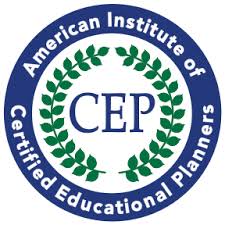We are fortunate to belong to an international association of educational consultants, IECA, and we take advantage of conferences, sponsored tours, and the breadth of collegiality that this association affords. At our spring conference this May, we heard similar messages from a wide range of colleges. Some salient points include:
Test-Optional Admissions
This practice has inflated the mid-50th percentile at most colleges. Don’t be put off by these numbers; rather, investigate scores from two years ago and then consider sending scores.
Although colleges are test-optional, a test score can validate grades and correlate to some elements of success at college. Many test-optional colleges openly accept more students who submit scores. Test if you can.
Character Counts
Seeking some validation of grades over the past two years, college admission offices are turning to the more “affective” elements in students’ applications. They are reading holistically for character: the values that motivate students to be successful drive them to have an impact on others. Colleges (Johns Hopkins, Haverford, University of Delaware, Ohio Wesleyan) spoke openly about “reading across an application” to identify common values in letters of recommendation, activity descriptions, and the personal essay. Resilience and engagement are two character traits that many admissions representatives emphasized in these discussions.
Special Opportunities
For those goal-oriented students whose grades or test scores may preclude them from being admitted to certain colleges or programs, “bridge programs” and business alternatives are strong options. We can help you to identify these programs at specific and popular state universities.
Promoting Personal Growth and Responsibility in Students
Many consultants shared strategies for buttressing students’ personal responsibility and emphasized ways to communicate more efficiently with parents. Although we use a scheduling app, we want students to initiate appointments with us and take responsibility for following up. We want to meet students where they are, so don’t be surprised if our sessions with students include poking around Reddit and Discord and reading college newspapers.



Leave a Reply